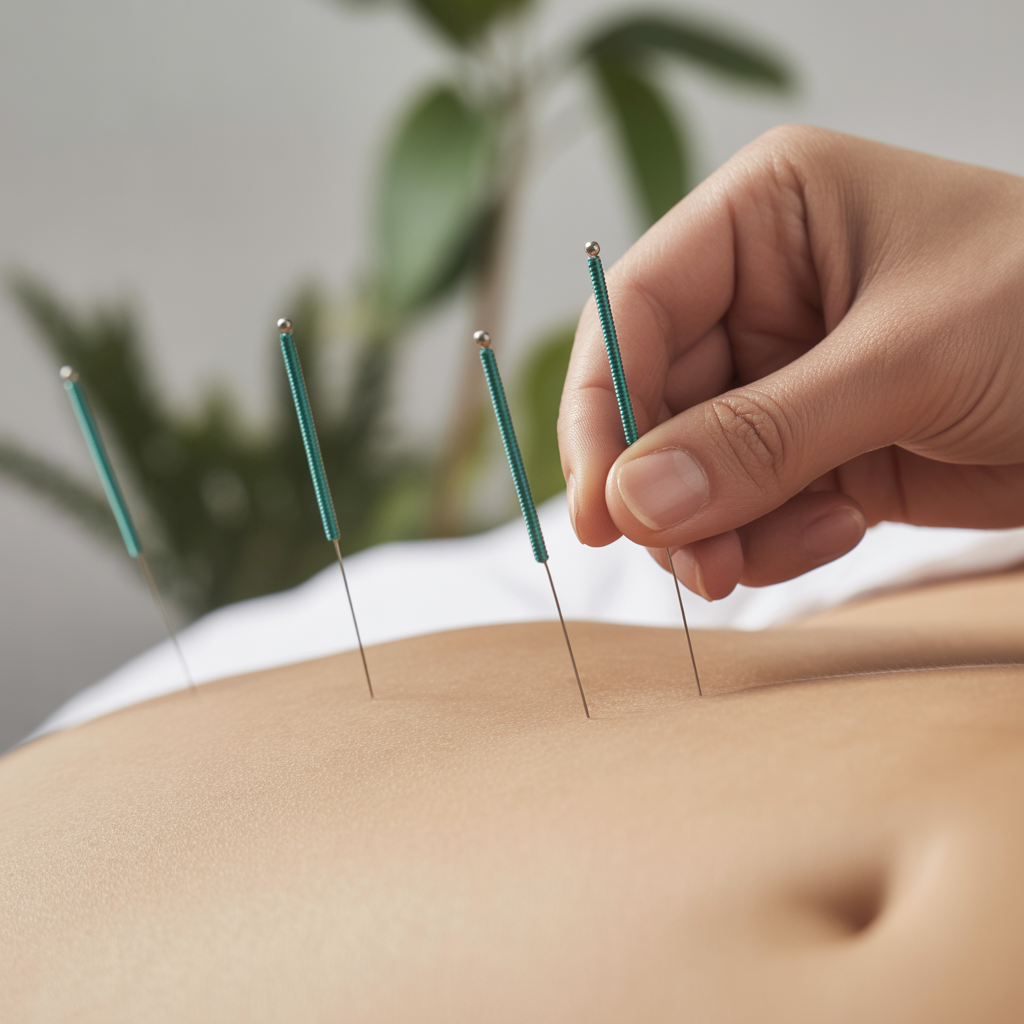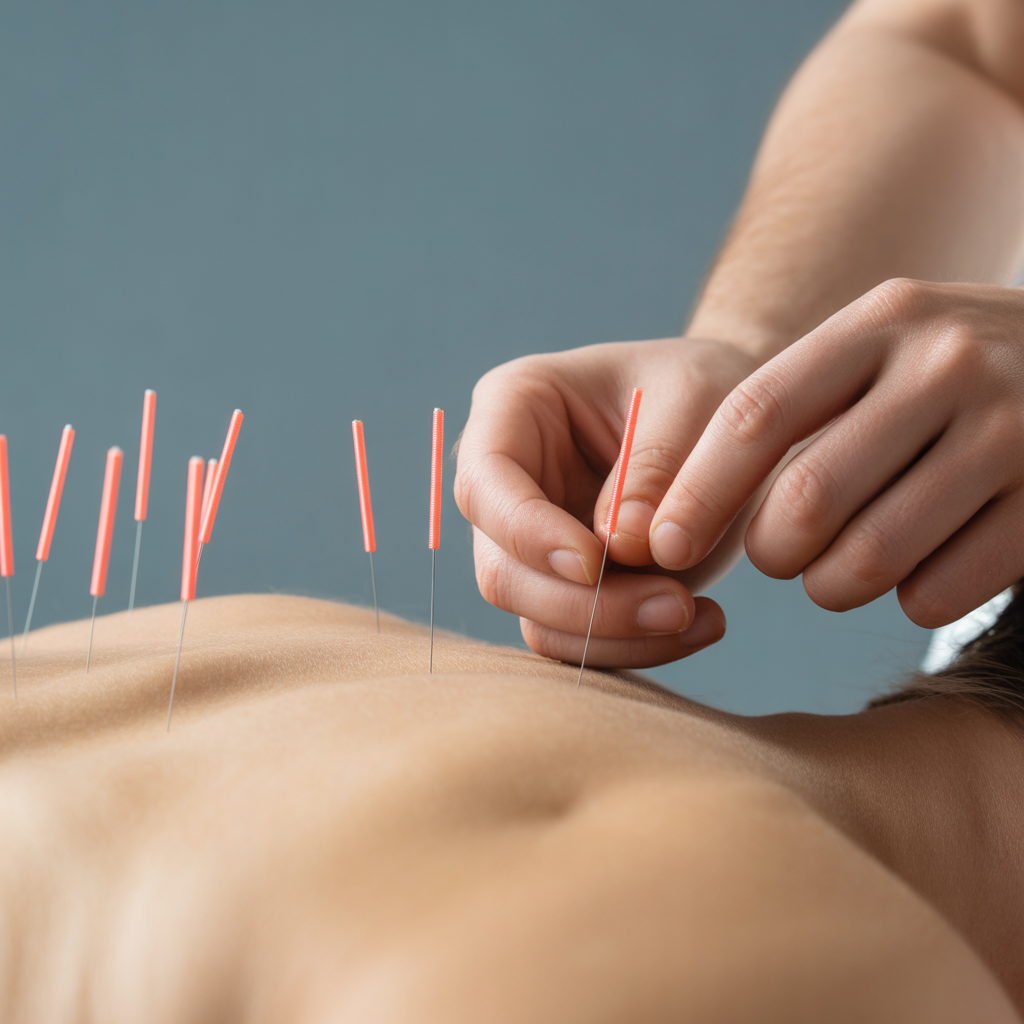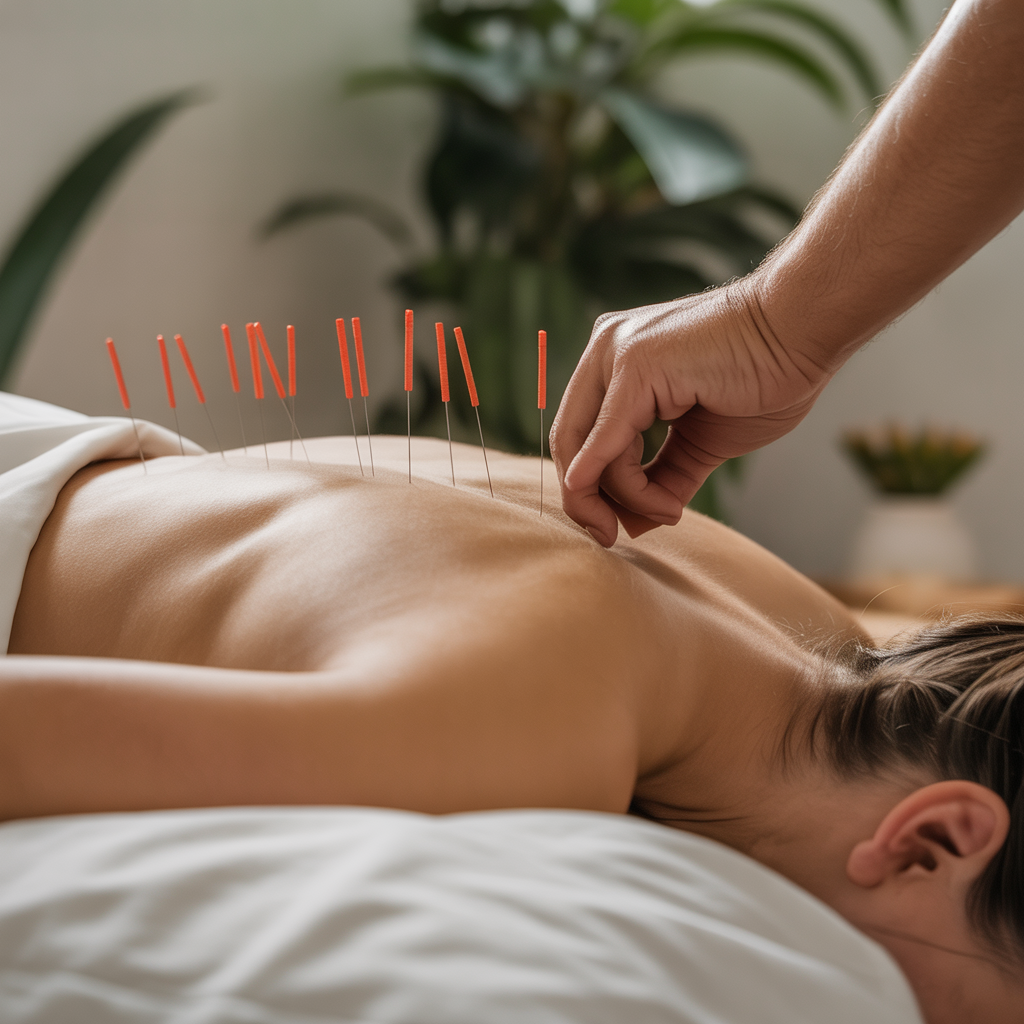Top 10 Benefits of Acupuncture: What Science Actually Reveals

Ever wonder why some people willingly pay good money to have tiny needles stuck into their skin? No, it’s not a strange form of penance—it’s acupuncture, and despite how it might sound to the uninitiated, millions swear by its effects. But is there actual science behind the hype, or is it just another wellness trend destined for the same graveyard as oxygen bars and shake weights? Below we have crafted a list with the Top 10 Benefits of Acupuncture.
Here’s what actually works: separating evidence-based benefits from the mystical mumbo-jumbo that sometimes surrounds this ancient practice. Whether you’re a curious skeptic or considering treatment for a specific condition, this deep dive into acupuncture’s benefits (and limitations) will help you make an informed decision about whether those tiny needles deserve a place in your wellness routine.
What Is Acupuncture? (Beyond “That Thing With the Needles”)
Acupuncture involves inserting hair-thin, sterile needles into specific points on your body. These points lie along what Traditional Chinese Medicine calls “meridians”—pathways through which your body’s vital energy (qi) flows. When this energy becomes blocked or imbalanced, according to traditional theory, illness or pain results.
The practice dates back at least 2,500 years in China, but it’s only gained significant popularity in Western countries since the 1970s. Today, you’ll find acupuncture offered everywhere from hospital pain clinics to integrative medicine centers.
According to the National Center for Complementary and Integrative Health, a typical session lasts 30-60 minutes, with most people feeling minimal discomfort during needle insertion. And no, you won’t look like a human pincushion—most treatments use just 5-20 strategically placed needles.
How Acupuncture Works: Eastern Tradition Meets Western Science
Forget everything you’ve heard about acupuncture being purely mystical—there’s fascinating science happening beneath your skin during treatment.
Traditional practitioners explain acupuncture through the concept of qi, but Western researchers have identified several physiological mechanisms that might explain its effects:
- Neurological stimulation: Acupuncture activates specific nerve fibers that send signals to your brain, triggering the release of endorphins and other natural painkillers.
- Microtrauma response: The tiny injuries created by needles may trigger local healing responses, increasing blood flow and reducing inflammation.
- Connective tissue effects: Research shows acupuncture needles create changes in your fascia (connective tissue), potentially affecting how pain signals travel.
- Central nervous system modulation: Brain imaging studies show acupuncture affects activity in areas that process pain and regulate bodily functions.
The truth? It’s likely a combination of these mechanisms plus some placebo effect—but that doesn’t make the benefits any less real for those experiencing them. Similar to how stress management techniques work through multiple pathways, acupuncture’s benefits may come from various physiological responses.
The Top 10 Benefits of Acupuncture (Evidence Based)
1. Pain Relief That Actually Lasts
Plot twist: Acupuncture isn’t just for people who wear crystal necklaces and drink kombucha. It’s become so mainstream that the American College of Physicians recommends it as a first-line treatment for chronic low back pain.
Multiple high-quality studies show acupuncture effectively treats various pain conditions:
- Back and neck pain: A 2018 review analyzing data from 12 studies (8,003 participants) showed acupuncture was significantly more effective than no treatment and sham acupuncture for back and neck pain. The pain-relieving effect was comparable to NSAIDs but without the side effects.
- Osteoarthritis pain: Particularly effective for knee osteoarthritis, acupuncture reduces pain and improves function. A 2018 review of 10 studies (2,413 participants) found acupuncture more effective than both no treatment and sham acupuncture.
- Headaches and migraines: A 2020 review found acupuncture slightly more effective than drugs for preventing migraines, with far fewer side effects. Participants receiving acupuncture had reduced frequency of both migraines and tension headaches.
- Myofascial pain: Acupuncture applied directly to trigger points shows favorable effects on pain intensity, according to a combined analysis of studies involving myofascial pain syndrome.
What makes acupuncture particularly valuable is its ability to provide lasting relief. An analysis of data from 20 studies (6,376 participants) showed that acupuncture’s beneficial effects continued for a year after treatment ended for most pain conditions.
2. Stress Reduction and Mental Clarity
Here’s what actually works for stress relief: Acupuncture stimulates your nervous system to release neurochemical messenger molecules that promote emotional and physical wellbeing.
Research shows acupuncture:
- Decreases stress hormones
- Increases endorphins and serotonin levels
- Promotes deep relaxation
- Deactivates the “analytical” brain responsible for anxiety and worry
Just as effective stress management is crucial for overall health, many find acupuncture to be a valuable tool in their stress-reduction arsenal. The Mayo Clinic notes that acupuncture is increasingly being used for overall wellness, including stress management.
Beyond just feeling calmer, regular acupuncture treatments can improve mental clarity and cognitive function. By promoting relaxation and reducing stress, acupuncture helps clear mental fog, improving concentration and decision-making abilities.
3. Improved Sleep Quality
Forget counting sheep—count acupuncture needles instead. If you’re among the 30% of adults struggling with insomnia, acupuncture might be your ticket to dreamland.
Acupuncture alters brain chemistry by reducing serotonin levels while increasing endorphins and neuropeptide Y levels, which helps regulate sleep. Studies show acupuncture can:
- Reduce the time it takes to fall asleep
- Increase total sleep time
- Improve sleep quality
- Decrease sleep disturbances
Unlike sleep medications, acupuncture addresses the root causes of sleep issues without creating dependency or morning grogginess. The Advanced Physical Medicine center notes that “many patients who have been receiving acupuncture therapy for years report that this treatment helps them fall asleep quicker and stay asleep longer.”
4. Enhanced Immune Function
Your immune system loves acupuncture almost as much as it hates that coworker who comes to the office with the flu.
Research indicates acupuncture can regulate immune function in two important ways:
- Boosting immunity by increasing the production of white blood cells to help fight infections
- Reducing excessive immune responses and inflammation in autoimmune conditions
This dual-action makes acupuncture particularly valuable during cold and flu season and for those with autoimmune disorders. Just as healthcare innovations are changing how we approach wellness, acupuncture offers a complementary approach to supporting immune health.
5. Digestive Health Improvement
Digestive issues affect millions of Americans, from IBS to acid reflux. Acupuncture offers relief by:
- Regulating the digestive system’s muscle contractions
- Reducing inflammation in the digestive tract
- Balancing stomach acid production
- Activating the parasympathetic (“rest and digest”) nervous system
For IBS sufferers, acupuncture can be particularly effective. When stress causes the sympathetic nervous system to trigger colon spasms, acupuncture activates the opposing parasympathetic system, helping to calm those spasms and reduce abdominal pain.
According to the Advanced Physical Medicine center, “Most people do not choose to pursue acupuncture therapy because of digestive issues, but they are often pleased to find that these treatments support digestive health. The unique process involved in acupuncture therapy allows the body’s systems to align, which naturally improves digestion.”
6. Allergy Relief
Seasonal allergies make millions miserable every year, but acupuncture offers a drug-free alternative to antihistamines.
A 2015 systematic review of 13 studies involving 2,365 participants found evidence that acupuncture effectively relieves allergic rhinitis symptoms. Participants who received acupuncture needed less medication and showed lower levels of immunoglobulin E (IgE), the antibody associated with allergic reactions.
The American Academy of Otolaryngology-Head and Neck Surgery now includes acupuncture among its recommended options for treating allergic rhinitis, recognizing its potential benefits for those seeking complementary approaches to allergy management.
7. Reduced Inflammation
Chronic inflammation is linked to numerous health problems, from arthritis to heart disease. Acupuncture has been shown to reduce pro-inflammatory markers in the body while increasing anti-inflammatory compounds.
This anti-inflammatory effect explains why acupuncture helps with conditions like:
- Rheumatoid arthritis
- Inflammatory bowel disease
- Asthma
- Sinusitis
By addressing inflammation at its source, acupuncture provides relief beyond just masking symptoms. Just as breakthrough medications target specific pathways, acupuncture may influence inflammatory processes through multiple mechanisms.
8. Hormonal Balance and Women’s Health
The truth about acupuncture for women’s health is that it can be a game-changer for hormonal issues. Research shows acupuncture can help:
- Menstrual pain and PMS: Acupuncture relaxes the uterine muscles, reducing cramping and pain
- Menopausal symptoms: Studies show acupuncture can reduce hot flashes by up to 40%
- Fertility support: Acupuncture improves blood flow to reproductive organs and may help regulate hormones
For women dealing with PCOS, endometriosis, or irregular cycles, acupuncture offers a complementary approach to conventional treatments. The Advanced Physical Medicine center notes that “menstrual cramps can be nearly as painful as a heart attack, and acupuncture can help calm the muscles in the uterus, reducing the frequency and severity of these cramps.”
9. Cardiovascular Health Support
Your heart might just skip a beat (in a good way) when you hear about acupuncture’s cardiovascular benefits.
Research indicates acupuncture can:
- Help lower blood pressure
- Reduce heart rate
- Decrease stress hormones that impact heart health
- Improve blood circulation
These effects make acupuncture a valuable addition to heart-healthy lifestyle changes, especially for those with hypertension or high stress levels. The Advanced Physical Medicine center explains that “the ancient acupuncture techniques that have been used for thousands of years have long been known to reduce stress and anxiety while simultaneously improving physical health, so it’s not surprising to find out that this procedure can help naturally regulate blood pressure.”
10. Post-Surgery Recovery
Acupuncture shines in post-operative care, helping patients recover faster with less discomfort. Studies show it can:
- Reduce post-surgical pain
- Decrease nausea and vomiting after anesthesia
- Improve energy levels during recovery
- Reduce inflammation around surgical sites
A 2016 evaluation of 11 studies found that patients treated with acupuncture one day after surgery had less pain and used less opioid pain medication during recovery. Just as top healthcare facilities are integrating complementary approaches, many surgical centers now offer acupuncture as part of their recovery protocols.
Acupuncture Side Effects: What to Actually Expect
Unlike many medications, acupuncture has remarkably few side effects when performed by a qualified practitioner. However, it’s important to know what you might experience:
Common Side Effects
- Minor soreness: Some tenderness at needle sites is normal and typically resolves within 24 hours
- Slight bruising: Particularly in sensitive areas or if you bruise easily
- Temporary fatigue: Some people feel tired after a session—this usually indicates a healing response
- Emotional release: Don’t be surprised if you feel emotional during or after treatment
Rare Side Effects
- Dizziness: Usually temporary and related to nervousness or hunger before treatment
- Skin irritation: Uncommon but possible, especially if you have sensitive skin
- Infection: Extremely rare with properly sterilized, single-use needles
According to the Mayo Clinic, “The risks of acupuncture are low if you have a competent, certified acupuncture practitioner using sterile needles. Common side effects include soreness and minor bleeding or bruising where the needles were inserted.”
Long-Term Benefits of Regular Acupuncture
Forget everything you’ve heard about acupuncture being just a quick fix—here’s the real deal on the long-term benefits of acupuncture:
- Cumulative healing effects: Many conditions respond better with a series of treatments, with effects building over time
- Preventative care: Regular sessions can help maintain balance and prevent issues from developing
- Reduced medication dependence: Many patients find they need fewer pain medications or other drugs
- Improved body awareness: Acupuncture helps you tune into subtle body signals before they become major problems
- Holistic health improvements: Beyond targeting specific symptoms, regular acupuncture improves overall wellbeing
The Advanced Physical Medicine center notes that “Regular acupuncture treatment sessions over a long period of time will help to reduce your chronic pain and allow you to live a limitless life.”
Finding a Qualified Acupuncturist
Not all acupuncturists are created equal. Here’s how to find one who won’t just randomly poke you:
- Check credentials: Look for practitioners certified by the National Certification Commission for Acupuncture and Oriental Medicine (NCCAOM)
- Ask about experience: Find someone with specific experience treating your condition
- Get recommendations: Ask your doctor or friends who have had successful treatments
- Interview potential practitioners: Ask about their approach, expected number of treatments, and costs
- Trust your instincts: You should feel comfortable and heard by your practitioner
The Mayo Clinic recommends: “If you’re considering acupuncture, take the same steps you would to choose a doctor: Ask people you trust for recommendations, check the practitioner’s training and credentials, and interview the practitioner.”
Many insurance plans now cover acupuncture for certain conditions, and Medicare covers it for chronic low back pain. Check your policy or ask about payment options before starting treatment.
The Bottom Line: Is Acupuncture Worth Trying?
Here’s what actually works: Approaching acupuncture with an open mind while maintaining realistic expectations.
The evidence shows acupuncture offers genuine benefits for many conditions, particularly pain management, stress reduction, and immune support. While some effects may involve placebo response (which, by the way, is a powerful healing mechanism in itself), numerous high-quality studies demonstrate physiological changes that can’t be explained by placebo alone.
If you’re curious about the top 10 benefits of acupuncture, there’s little downside to giving it a try. With minimal risks and potential for significant benefits, it represents one of the safest complementary therapies available today.
Remember that healing isn’t always linear, and acupuncture works best as part of a comprehensive approach to health that includes proper nutrition, exercise, stress management, and appropriate medical care. Just as understanding habit formation can help you build healthier routines, incorporating acupuncture might become a valuable part of your wellness practice.
Have you tried acupuncture? What was your experience? Share your thoughts in the comments below!
Disclaimer: This article about the top 10 benefits of accupunture is for informational purposes only and does not constitute medical advice. Always consult with a qualified healthcare provider before starting any new treatment.



